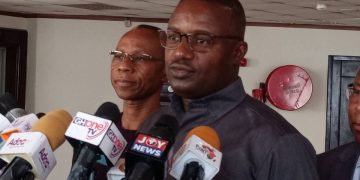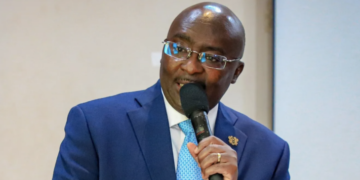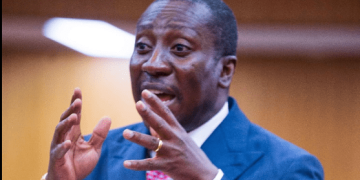The Minister for Trade and Industry, K.T Hammond, has reaffirmed the government’s unwavering commitment to reintroducing the import restrictions bill to Parliament, signalling a resolute stance amidst significant opposition.
Despite facing staunch resistance from various quarters, including traders, importers, and parliamentary dissenters, the Trade Minister remains steadfast in championing the legislation aimed at curbing the influx of cheap imported goods. The proposed Legislative Instrument (LI), which encountered substantial pushback and was subsequently withdrawn, has not been shelved indefinitely, Mr Hammond clarified.
The Trade Minister articulated the urgent need to safeguard local manufacturers from the adverse impacts of foreign competition underscoring the government’s staunch belief in the imperative of protecting Ghanaian industries from external pressures, echoing sentiments reminiscent of economic nationalism.
The contentious bill, suspended in December 2023, had sought to impose stringent regulations on importers of 22 restricted items, spanning poultry, rice, sugar, diapers, and animal entrails. While proponents of the bill argued its necessity in fortifying Ghana’s economic sovereignty, detractors, notably the Minority in Parliament, raised concerns over potential breaches of international trade protocols and the concentration of undue powers in the hands of the Trade Minister.
“How come every conceivable item that we consume in this country is imported? Look at our Balance of Payment accounts. Just last year in 2023, we imported over 200 million dollars worth of animal intestines (yemuadie) as food.
“How can we be importing so much rice? The LI has just been held in abeyance. I can promise you, we are going to lay it”, he declared.
Drawing parallels with nations like Malaysia and Singapore, Mr Hammond extolled the virtues of decisive protectionist measures as instrumental in nurturing indigenous industries and fostering global competitiveness. His impassioned plea for economic self-determination resonated with proponents of the bill, including prominent figures such as Dr. Tony Oteng-Gyasi, Chairman of the Board of Tropical Cable and Conductor Limited.
However, amidst the fervor for economic protectionism, dissenting voices continue to caution against the perils of the regulation and the specter of corruption that may accompany unchecked executive authority.



















































































